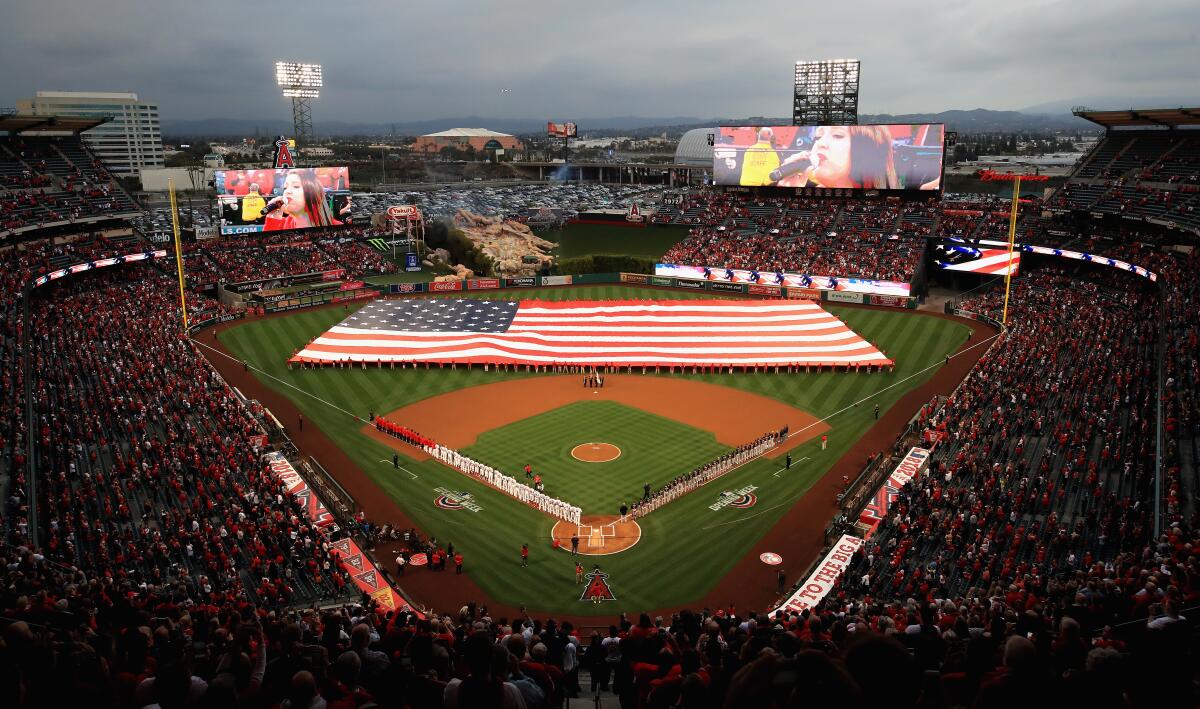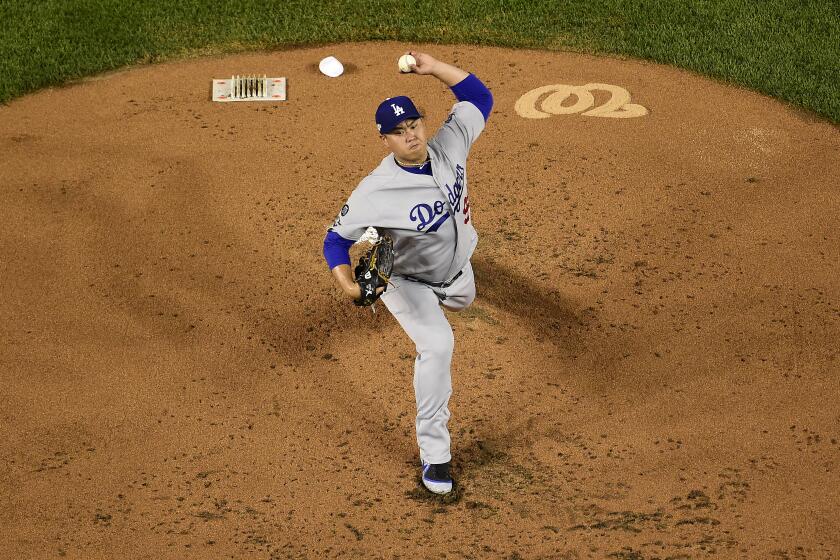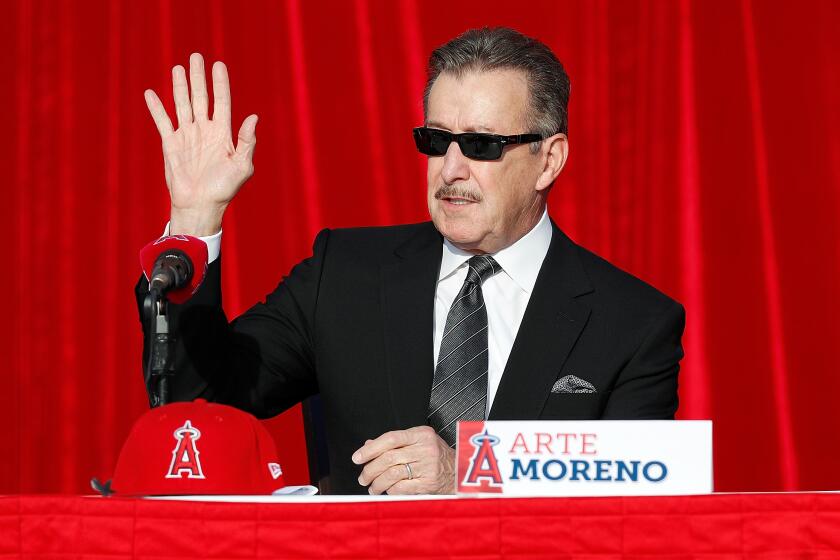On eve of stadium vote, Angels envision their own magic kingdom

- Share via
Angels Chairman Dennis Kuhl remembers a day he was in Boston. He was about to catch a ballgame at Fenway Park and his friends said they would meet him there.
He was surprised. His friends did not have tickets to the game. But his friends said the atmosphere around the ballpark was so lively that they would often catch a game at one of the neighborhood restaurants or bars rather than stay home and watch on television.
So, as about 200 Angels fans rallied Wednesday night in support of a proposed deal with the city of Anaheim, Kuhl looked around. He was across the street from Angel Stadium, standing on the patio of Golden Road Brewery, a massive indoor/outdoor restaurant, tap room and lounge.
What did Kuhl envision as part of the Angels’ development of the stadium parking lots?
“Something like this,” he said, “but four or five of them.”
On Friday, the Anaheim City Council is expected to approve the sale of the stadium and surrounding parking lots to a company controlled by Angels owner Arte Moreno. That would come six days after the team introduced star third baseman Anthony Rendon, signed to a $245-million contract.
“We’ve had a good week so far,” Angels Hall of Famer Bobby Grich told the crowd.
The Angels have engaged in multiple conversations with agent Scott Boras about clients Hyun-Jin Ryu and Dallas Keuchel.
The Angels opted out of their stadium lease last year, saying they wanted to pursue “a high-quality fan experience beyond what the original lease allows.”
The Angels have considered building homes, shops, restaurants, offices and a hotel on the 153-acre stadium site, although they have not committed to a specific development plan. They also have not announced whether they would rebuild the current stadium or build one.
But Kuhl made clear the “high-quality fan experience” would extend beyond the stadium gates and into the neighborhood, transforming what is an oasis of a stadium amid a desert of parking lots into a village that would blend the ballpark into the surrounding community.
In theory, the area would come alive every day, not just on game days, with residents of the newly developed homes joining other locals in an entertainment district similar to the ones outside Petco Park in San Diego, Coors Field in Denver or Wrigley Park in Chicago.
On the other side of the Orange Freeway, and within walking distance of Angel Stadium, the Ducks plan to build a similar live/work/play project that a city-commissioned appraisal said would be “consistent with the theme and design and appeal of the Irvine Spectrum.”
Said Kuhl: “We don’t really have a downtown area, like in New York City. This will be our downtown.”
Anaheim has released a study that shows what Angels owner Arte Moreno and his partners might do with the Angel Stadium property after they buy it.
The proposed city resolution that would accompany the sale describes the stadium land as “underutilized, falling substantially short of its commercial, retail, entertainment, residential and revenue and job-generating potential.” After the city tried and failed to develop the land over half a century, Moreno and his company would get a chance.
“It’s a clean palate. We can paint whatever we want,” Kuhl said. “Maybe we can build a new stadium. How cool would that be? We don’t know yet. But at least we would have the opportunity. That’s what I look forward to, the opportunity.”
As Cole Zwickl and his brother Eddie sat at a taproom table, one wore an old-school Angels jacket with a golden halo atop the A and the other wore a late-1990s cap with the unfortunate winged-A logo. The brothers are residents of Anaheim.
Eddie Zwickl said he had familiarized himself with the proposed sale, in which the city would agree to sell the land for an announced price of $325 million, with the price subject to discount depending on a development plan that would not be submitted until next year. The Angels would commit to stay in Anaheim through at least 2050.
“I’m just glad the city is keeping the team,” Zwickl said. “I don’t see too many issues where we would regret this long-term.”
The brothers had a more immediate issue: the Angels’ pitching, or lack of same. Eddie Zwickl suggested the Angels add Hyun-Jin Ryu.
“I like David Price,” his brother said.
Mitch Cherness, a season-ticket holder from Garden Grove, hoped the Angels’ urgency in getting a stadium deal done this week would be matched by urgency in upgrading the pitching staff.
“Without pitching,” he said, “we’re dead in the water.”
More to Read
Go beyond the scoreboard
Get the latest on L.A.'s teams in the daily Sports Report newsletter.
You may occasionally receive promotional content from the Los Angeles Times.









